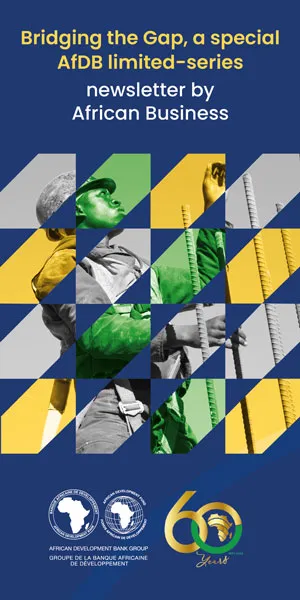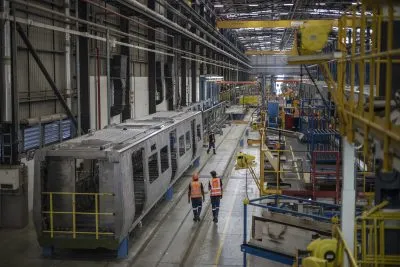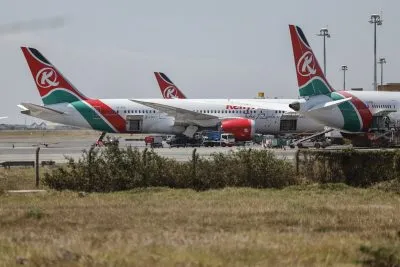While members of three of Africa’s largest trading blocs continue their discussions on greater intra-African economic and trade integration, the interests of one class of traders seem to have been ignored. These are the millions of informal traders who have plying their wares across border for centuries generating as much as $17bn annually. Tom Nevin makes the case for their inclusion in the discussions.
Negotiations are about to resume on cross-border trade in Africa, generally accepted as the cornerstone of a strong economic foundation for the continent.
These talks, within the ambit of Tripartite Free Trade Alliance (T-FTA) specifically engage the economic blocs of the Common Market of East and Southern Africa (Comesa), the East Africa Community (EAC) and the Southern African Development Community (SADC) as part of a process that will eventually lead to a continent-wide body called the African Economic Community (AEC). It is surprising, therefore, that one of the continent’s most pressing issues, informal cross-border trade (ICBT), is conspicuous by its absence from the conference agenda. In the words of Zimbabwe academic, Nsolo Mijere, now resident in Ethiopia: “The paradox of economic integration without the participation of the ordinary regional citizens and informal traders remains a dream of the political class.”
The real challenge is to identify the extent to which ICBT can be factored into formal trade negotiations. And where to start? African merchants have been plying the import/ export trade for countless centuries, unhindered by border posts, customs officials and immigration stamps in passports and tariffs and taxes and other such inconveniences. Official SADC treaty documents refer to ICBT as trade in legitimately produced goods and services which escape the regulatory framework set by governments, as such avoiding certain tax and regulatory burdens. Women constitute about 70% of the informal cross-border traders in the SADC region, according to the United Nations Development Fund for Women. Most traders have no education and raise capital from their own resources. They are generally not bankable nor do they have assets that banks would accept as collateral. They can also be formally registered firms evading regulations and taxes or aiming to avoid bordercrossing posts.
Just under half of such trading activity is considered illegal. “This trade constitutes a significant proportion of regional cross-border commerce in many African countries with between 30-40% of total intra-SADC trade attributed to ICBT. The average estimated value of ICBT from this region is an impressive $17.6bn annually,” says Taku Fundira, researcher at the Southern African Trade Law Centre (tralac). In East Africa, for ex zample, says Fundira, the informal economy in the EAC, as with the rest of Africa, largely comprises micro, small and medium-scale enterprises (MSMEs) that are seen as semi-organised and unregulated. In Kenya, these enterprises employ 7.5m people or 80% of the country’s total workforce outside small-scale agriculture. Such statistics highlight the importance of ICBT as a centuries-old, quietly flowing artery between rural people and the commercial hubs, and between commercial hubs themselves.
“The tradition cannot simply be ignored,” notes Fundira. “It plays an ever stronger, unified and sustained African effort that alleviates poverty by enhancing food security and income creation, particularly for rural populations constantly exposed to social exclusion.”
Despite ICBT’s macro-economic and social positives, informal cross-border traders remain largely unacknowledged, mainly because so little is actually known about them.
“So,” says Fundira, “the important question to be tackled in this round of talks is what to do about the needs and challenges facing informal cross-border traders.” He maintains that while policies and protocols exist for informal trade at the regional level they are superficial “and they do not seem to take the sector seriously and do not respond to its needs effectively. Are they relevant actors in regional trade?”.
The squeaky wheel gets the grease
However, pressing issues have a way of making themselves heard and often offer up solutions born of necessity. Such a development is the emergence of lobby groups in the growing ICBT sector.
In response to the noise, the regional economic communities of Comesa and the EAC launched a Simplified Trade Regime (STR) for selected commodity types in which smallscale traders benefit from a Simplified Customs Document and a Simplified Certificate of Origin.
In this way, goods valued at under $500 originating from member countries, qualify automatically for duty-free entry into the respective markets with certificates issued at border posts to speed up and simplify the process. Such baby steps are a slowly-slowly way of catching this particular monkey, but they are an important start and nobody’s scorning them. The trick now is to build on them and get a head of steam in the boiler. A big problem is the uncertainty. And so the current round of T-FTA talks are under way without knowing how far the final agreement will take into account the needs of ICBTs. The plight of this group of traders is not on the agenda, but this is not to say that it will be totally excluded. An encouraging development in Comesa might help put it on the discussion programme. There, a recent evaluation of a simplified trade regime in support of ICBTs could be the impetus that creates a regional institutional structure dedicated to ICBT development.
For Fundira, “the proof will be in the pudding. We can only talk of how far the negotiations have addressed the plight of ICBTs when they come to a conclusion. But,” he adds, “despite this shortcoming in the negotiation process, what is important is the fact that tangible programmes must be put in place that will ensure ICBTs are engaged at the policy level so governments can appreciate and understand in detail the extent and contribution that this sector can provide.” Pressure groups have been bombarding the media, the delegates and associated institutions, and anyone else who might be listening, with the kind of items that should be on the T-FTA agenda. They include:
- What type of enabling environment is needed for ICBT? For example, how much can they be taxed without compromising compliance?
- What standards need to apply to them?
- How can the informal sector exist with the formal sector with little hurt to the economy?
- What measurements define informal as against formal sectors?
- What to do in cases where merchandise that may be legal imports or exports on one side of the border are illicit on the other side and vice versa?
These questions are not new. They have been resonating amongst researchers and policy makers alike. And they are clamouring for attention. They are important and they need to be addressed as a means of stabilising and developing Africa’s collective economy and sustainable food security, to say nothing about the political rewards to be gained through a truly continent-wide environment of growth.
AEC – a key African economic building block
The idea of continent-wide economic cohesion was manifest with the Abuja Treaty of 1991. That essentially led to the sod turning in 2010 for an ambitious African common market called the African Economic Community (AEC ). It was motivated at the time by an African consensus that “by merging its economies and pooling its capacities, endowments and energies, the continent can overcome its daunting development challenges. Attainment of the AEC is expected to be in stages, with the regional economic communities serving as the building blocks”, said a statement by the Economic Commission for Africa in Addis Ababa. Some unexpected detours changed the AEC roadmap, the most significant being the more convenient melding of Africa’s three sub-Saharan economic communities, Comesa, the EAC and the SADC into the Tripartite Free Trade Alliance (T-FTA).
The organisation was signed into existence at a Summit in Johannesburg in June 2011 amid the consensus agreement that “regional integration remains the key strategy for African governments”.
The T-FTA is now the standard bearer of Africa’s economic fortunes and carries the responsibility of melding the continent’s disparate, and individually weaker, economies into a strong and economically significant partner in global affairs. The AEC will be formalised once the T-FTA is running smoothly and economic free trade protocols on a country-to-country basis are in place.
Want to continue reading? Subscribe today.
You've read all your free articles for this month! Subscribe now to enjoy full access to our content.
Digital Monthly
£8.00 / month
Receive full unlimited access to our articles, opinions, podcasts and more.
Digital Yearly
£70.00 / year
Our best value offer - save £26 and gain access to all of our digital content for an entire year!
 Sign in with Google
Sign in with Google 



